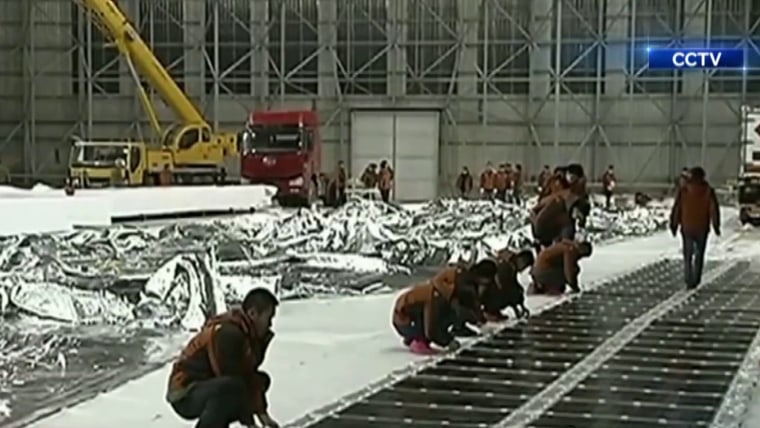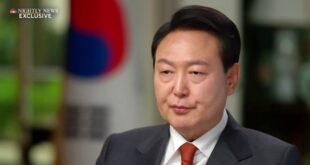[ad_1]
BEIJING — The politically important U.S.-China relationship is vulnerable to cultural differences — such as why a phone call doesn’t get picked up.
After the U.S. shot down an alleged Chinese spy balloon this month, China’s defense ministry declined a call with its U.S. counterpart, according to statements from both sides.
It isn’t the first time China didn’t answer the phone — a hotline set up for emergencies.
Chinese culture is a reason why, said Shen Yamei, deputy director and associate research fellow at state-backed think tank China Institute of International Studies’ department for American studies.
She said she wasn’t aware of what actually happened between the U.S. and China regarding the declined phone call. But she shared potential factors — “the hidden worry,” in her understanding of Chinese culture.
“We are really afraid that if the so-called conflict control or crisis control measures that the U.S. [has] been keen to set up are really put in place, then it might be encouraging more [reckless] and careless and brazenly bold action from the U.S. side,” Shen said.
“We want China-U.S. relations to be stable,” she said. “If the U.S. is always talking about the worst-case scenario, the hotlines, the crisis control, then we are putting U.S.-China relations on a very low scale.”
The default U.S. view is quite different.
“You have hotlines because if something becomes difficult or tense, or there is at least a potential for a major misunderstanding and therefore a major miscalculation, you need to be able to talk to each other quickly,” said Barbara K. Bodine, a retired ambassador and director of the Institute for the Study of Diplomacy at Georgetown University.
“Even though we probably don’t call it a hotline, if something happens with Ottawa we get on the phone and say, ‘Excuse me, what was that?’” she said. “That’s the basic part of diplomacy.”
Spy balloon vs. weather tracker
China and the U.S. have different explanations for why the balloon was flying over the U.S.
Beijing maintains it was a “civilian unmanned airship” for weather research simply blown off course. The U.S. says it was a “high-altitude surveillance balloon” attempting to spy on strategic sites within the country.
The incident, widely covered by U.S. media, forced U.S. Secretary of State Antony Blinken to postpone his trip to Beijing — a rare opportunity for both countries to communicate amid heightened tensions.
The fallout also makes activating hotlines “absolutely critical” for the bilateral relationship, said Scott Kennedy, senior adviser and Trustee Chair in Chinese Business and Economics at the Center for Strategic and International Studies in Washington, D.C.
The next step, he said, “is to have more in-depth dialogue about how we view the other side, what are red lines, what we want out of the relationship and what’s achievable and practical, and then look to build on that.”
 Latest Breaking News Online News Portal
Latest Breaking News Online News Portal





